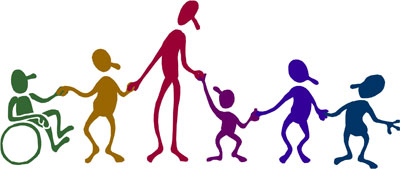Early adolescence is when young women need to learn to deconstruct the beauty myth.(Sheridan, 2001) How are young women as well as young men supposed to do this when they are bombarded by the media telling them how to live the perfect life?
Young women and men are being influenced by the media everyday of their lives. They see thin, beautiful people succeeding in the shows they watch, the songs they listen to, and sell the products they want to buy. These young men and women strive for this perfectness that is created specifically to sell. In their efforts to become what they are told is perfect they may develop mental health issues such as eating disorders.
In 2005, more than 500,000 Canadians suffered from some sort of eating disorder.("Eating disorder statistics," ) This is a shocking, yet somewhat understandable statistic because of the pressure that the media creates. Every second commercial on t.v. seems to be one about some kind of new diet out there and other commercials are accentuating how beauty equals power in life. What the women and men affected by these disorders need help realizing is that these ideals are not the norm.
In some ways the media is oppressive and something needs to be done in order to liberate these individuals from feeling the need to conform. The liberal feminist remedy for gender inequality is to reform (not transform) social institutions. (Mullally, 2007) Even though the media affects both women and men there is an emphasis on what is suppose to be the norm for women.
Gender inequality in the media appears in a significant number of ads, t.v. shows, etc. and it would be beneficial to reform the way it is presented. A radical change in the way media is made would not be a realistic goal. Sometimes the audience wants to see amazingly unattainable beauty but incorporating all different types of people would be a big step.
Alexis B.
References:
Eating disorder statistics. (n.d.). Retrieved from http://www.hopewell.ca/content/canadian-statistics
Mullaly, B. (2007). The new structural social work. Canada: Oxford University Press.
Sheridan, N. (2001). Beyond ophelia: feminism for girls. Canadian Woman Studies, 20. Retrieved from http://proquest.umi.com.proxy2.lib.umanitoba.ca/pqdweb?did=000000646362421&Fmt=3&cli entId=43168&RQT=309&VName=PQD
